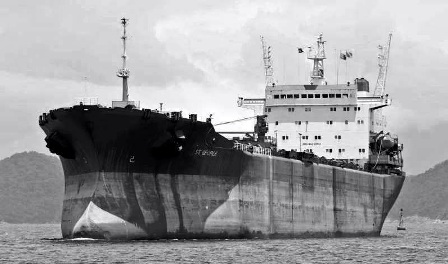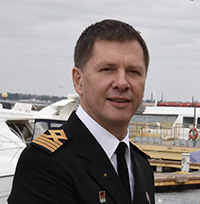Psychological Support for Seafarers: Maintaining Health and a Sustainable Maritime Career
Over four decades at sea and years of psychological practice, I have observed a consistent paradox: despite continuous advances in maritime safety technologies, the number of human-related incidents has not declined. In fact, there is a noticeable increase in cases where experienced professionals make decisions inconsistent with their level of competence.
The underlying cause is not insufficient knowledge or skill. It lies in the psychological condition of the individual — in the invisible yet decisive sphere of mental and emotional balance.
The Modern Seafarer: Between Outer and Inner Storms

The maritime profession has always required courage, endurance, and strict self-discipline. Yet, if in earlier decades the seafarer’s trials were limited to natural elements, isolation, and prolonged separation from home, today these are compounded by new, invisible stressors.
Modern seafarers operate in a high-intensity environment where workloads have multiplied, rest periods have shortened, and the boundary between work and recovery has blurred. The inter-voyage period often turns not into rest but into a cycle of physical and psychological restoration in preparation for the next deployment.
Extended contracts, delayed payments, growing bureaucracy, and constant managerial pressure from shore-based authorities have turned service into a continuous race for compliance. Virtual connectivity, though seemingly bridging distance, often amplifies feelings of helplessness when dealing with family or personal challenges ashore.
To these individual burdens are added the pressures of global uncertainty — wars, political instability, and economic crises. As a result, today’s seafarer carries not only professional but also existential strain.

The Invisible Storm: The Mind Under Pressure
The human psyche is designed to adapt and survive, signaling distress through emotions and the div. These signals, however, are often overlooked or misinterpreted.
In one person, stress manifests as irritability or insomnia; in another — through emotional numbness, loss of motivation, or cognitive decline. What appears as simple fatigue is frequently a sign of mental overload — a psychological “engine overheating.”
Somatic symptoms often become the language through which the mind speaks:
- Headaches and neck tension reflect chronic overcontrol and the inability to relax.
- Chest discomfort and blood pressure instability mirror anxiety and suppressed fear.
- Gastrointestinal problems indicate unexpressed anger or resentment.
- Lower back pain symbolizes the long-term burden of responsibility.
- Persistent fatigue and apathy are early markers of burnout.
When the psyche is silenced, the div begins to speak. If these warnings go unheeded, a collapse — physical, emotional, or behavioral — becomes inevitable.
Psychological Support Systems: Institutional and Individual Levels
Psychological assistance should be regarded not as a luxury or a passing trend but as an integral component of maritime safety — equal in importance to technical maintenance or medical examination.
1. Institutional (Corporate) Level
An increasing number of companies and maritime unions have begun implementing mental health programs aimed at burnout prevention, crisis intervention, and family support. Such initiatives represent not costs but investments in operational safety.
The financial consequences of a single human error made by an exhausted officer may exceed the annual budget of an entire psychological service.
2. Individual (Personal) Level
True transformation begins when a seafarer chooses to engage in personal psychological work.
Psychotherapy in this context is not a clinical treatment of pathology but a structured process of self-awareness and restoration.
In therapy, one can finally articulate the truths often hidden behind professional stoicism:
- “I am tired of the sea.”
- “It’s difficult to communicate with my son.”
- “I’m afraid of losing my qualification.”
Acknowledgment of these experiences marks the beginning of recovery.

Benefits of Psychological Work
Consistent psychological support produces measurable improvements in well-being and professional performance, including:
- normalization of sleep and blood pressure;
- reduction of anxiety and irritability;
- increased concentration and resilience under stress;
- renewed motivation and interest in work;
- improvement in family communication;
- development of internal stability and professional maturity.
A psychologically balanced seafarer is not weaker — he is more adaptable, focused, and reliable.
The Human Factor as the Core of Safety
Up to 85% of maritime incidents are attributed to the so-called “human factor.” Yet this term often conceals the real issue — the cumulative effects of fatigue, chronic stress, and emotional exhaustion.
Safety at sea begins not with machines or checklists but with the psychological stability of those who operate them.
A resilient seafarer is not defined by the absence of failure but by the ability to recover after adversity.
Psychological Competence as a 21st-Century Skill
In the modern maritime environment, psychological competence is as critical as technical proficiency. A seafarer must be able to:
- manage stress effectively;
- understand and regulate emotions;
- communicate constructively within multicultural teams;
- recover after overloads;
- seek help when necessary without stigma or fear.
These are not signs of weakness — they are indicators of professional and personal maturity.
In the 1980s, when I began my maritime career with the Black Sea Shipping Company, navigation depended on the compass, log, radar, pelorus, sextant, and human expertise. Today, satellites and digital systems provide near-total positional awareness. Yet, paradoxically, accidents have not diminished; they have simply changed in nature and complexity.
What remains constant is the true instrument of navigation — the inner compass: the capacity to listen to oneself, recognize one’s emotional and mental state, and consciously determine direction.
After four decades at sea and years of psychological practice, I have learned that real strength lies not in invulnerability but in the courage to ask for help and to rise again.

Odessa, November 2025




